Undergraduate Library Fellows
Changed Plans: Focusing Efforts Where They Matter
By Margaret Asperheim, ’22
At the beginning of the Library Fellowship in August, I remember feeling simultaneously excited and unprepared. The Berkeley library system is huge and complicated, as is its system of research resources; how exactly were we going to improve undergraduate research abilities given that all of the resources students could possibly need already existed? Over the course of this year, the Research Team — Katherine, Sofia, Jessica and I — set out to do just that.
When we started brainstorming the ways in which we could improve library resources, we found that we were all in agreement about one thing: we didn’t need to create a new library guide or instructional video. Those resources already exist: the problem is finding them. We quickly latched on to the phrase “point of entry” as a way to describe what we felt students were lacking: not the resources themselves, but the motivation, inclination and know-how to discover them.
So we had a goal. Now, what we needed was a plan. How could we shift students’ ideas of the library from mysterious and overwhelming to approachable and friendly? Further, how could we do it in one semester? We ended up pivoting our proposal several times, from a short, accessible guide to research resources (rejected because it violated our previous stance that enough resources already existed), to a new student research help desk position (way more work than could have been achieved in a semester), to a curriculum for a hypothetical research help desk employee (still too much work), to finally a survey of current student library employees and their opinions about research. We realized that most of our plans featured student peers as a point of entry, and so we decided to take stock of the most obvious student library peers: the circulation desk workers. If undergraduates felt comfortable asking student library workers for help — and if student library workers felt confident giving research advice — we figured that library resources would become much more accessible.
In our survey of student library workers, we included the following questions: do you think you are adequately trained to answer patrons’ research questions? What existing UC Library research resources are you currently aware of? Would receiving training related to conducting/assisting students with library research be beneficial to you as a library student worker? And what library research skills would you like to learn more about? When my fellowship team conducted a survey of current student library workers, we found that 82% of respondents would like to learn more about finding and evaluating sources. Another 64% of respondents mentioned that receiving library research training would be beneficial to them as student library workers.
Over the course of this fellowship, I learned that making resources isn’t enough; you have to engage with students to really improve research skills, something that I believe will make a noticeable difference in the way students relate to the library. Further, because the library staff has limited resources, it makes sense to focus its energies on those resources that already do exist: namely, the student library employees. As a student library worker myself, I know that students feel comfortable asking questions at the desk, but library employee training is generally focused on things like shelving and scanning in books, not on assisting students with research. Overall, I learned how to focus my efforts where they will make the most difference, and not necessarily within my comfort zone.
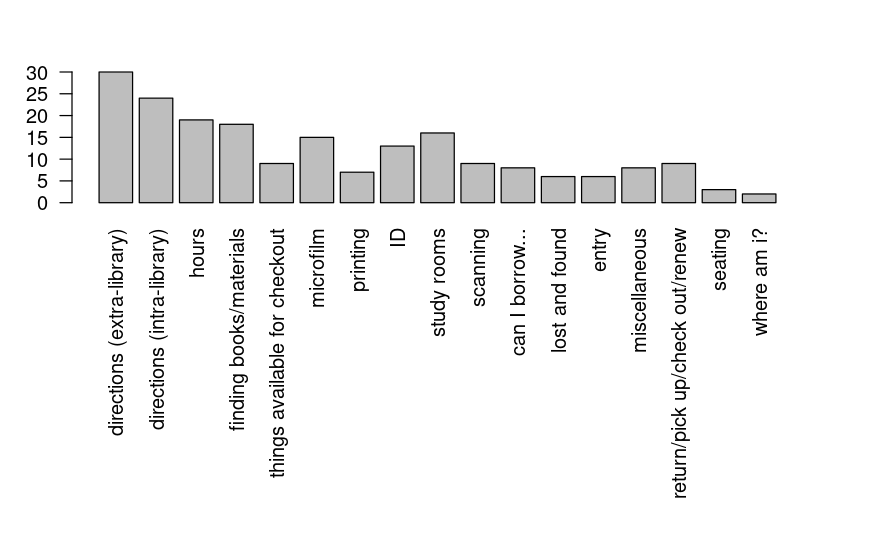
Learning in the Makerspace
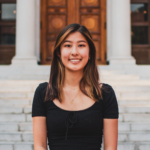
by Alysa Liu ’24
I’m Alysa, one of the fellows that was on the Making Team working on increasing the accessibility of the Makerspace to more students at Berkeley. We wanted to focus specifically on people who identified as students of color, junior transfers, and nontraditional college students. Our deliverable for the end of the semester was a workshop held at the Doe Makerspace in which we brought students from these backgrounds here and taught them how to use some of the tools to customize their own tote bag. Additionally, we collected some key insights through a survey on how this workshop could inform future Makerspace outreach and workshop initiatives that are more accessible for students.
So, how did we get to our final deliverable in the first place? In the beginning of fall semester, my team and I, Maura, Christina and Chloe, first got together to do some user research. We wanted to see how people behaved organically in the Makerspace so we staked out at the first floor of Moffit and, through our observations, noticed that the women and students of color in general felt less comfortable in the space than other students. This informed our problem scope stated earlier: How might we increase the access to the Makerspace for students in marginalized communities?
In preparation for our event, which was going to be held in the newly relocated Doe Makerspace, I created a flyer to spread the word about it. Christina then made sure that it got to our target audiences by asking the Multicultural Community Center, Transfer Student Center, Disabled Students Program, and other similar organizations to include our event in their weekly newsletters. Our marketing brought in over 50 registrations which we were really excited about, but now we faced the problem of how to manage so many participants in the Makerspace at the same time.
During the few minutes before the actual event, we set up stations that featured a specific tool in the Makerspace that they can use to customize their tote bag. All of us were either responsible for a station or worked on gathering survey responses. I personally helped people heat press vinyl-cut designs onto their tote bags. It was really rewarding getting to speak with actual students that were both interested and amazed by the Makerspace since it was completely free and open for any student to use. A lot of them wanted to come back again for future personal projects such as mending clothes, or 3D printing Cal memorabilia.
Through the survey, I saw our qualitative observations become actualized into quantitative observations: over 75% of the people who came to the Makerspace that day had no idea it even existed, while the other 25% had only heard of it before, and everyone said that they would want to come back to keep exploring its services. We also gathered insight as to what times people would be most available to come to workshops, and learned a little bit about people’s general schedules.
In the future, I think the Makerspace can definitely draw from the techniques we used to spread the word about this event to increase campus-wide awareness. I see this as an experiment that played with how we normally hold and spread the word about events at the Makerspace. I also see it as just the beginning of innovating and ideating on what being in the Makerspace at Berkeley will look like in the future. I’m very excited to delve deeper into how we might hold similar events like this to keep bringing new members into our community of Makers.
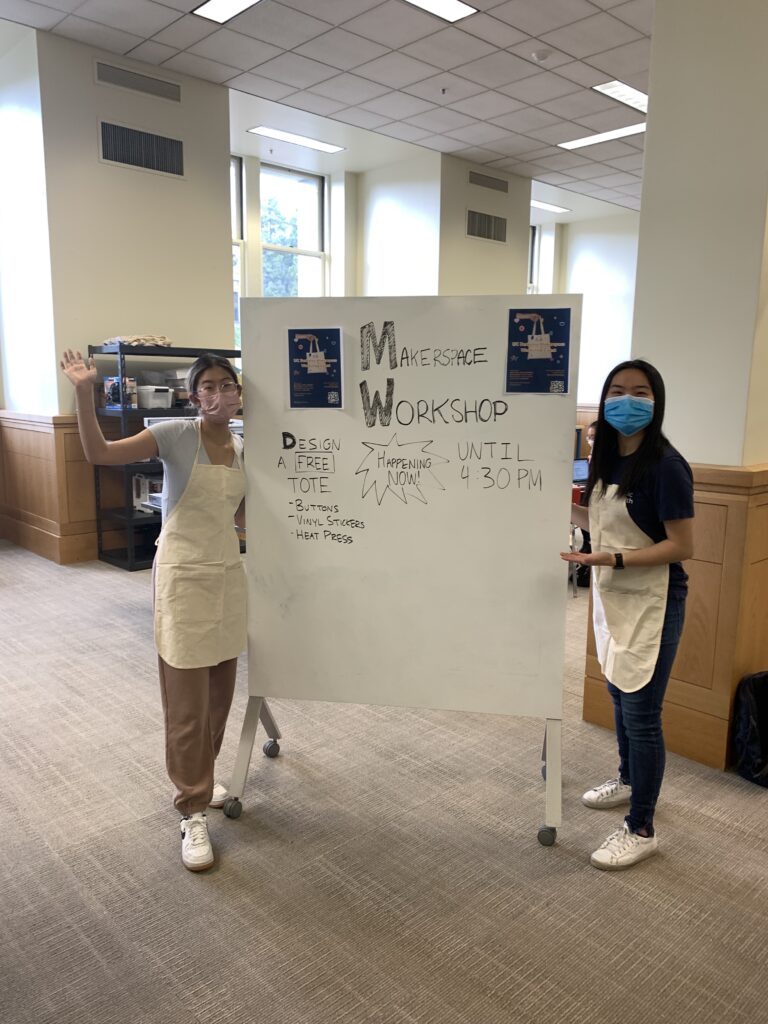
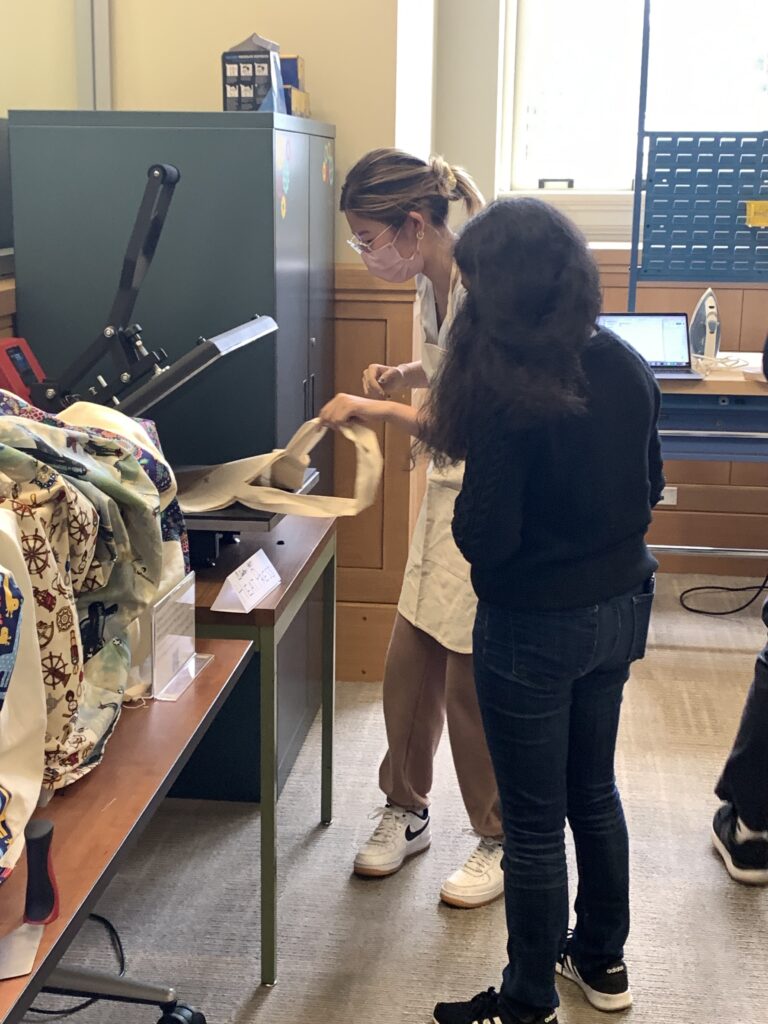
Reflecting on Resiliency: Researching Smarter, Not Harder
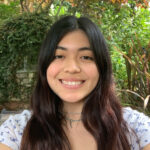
by Sofia Hernandez ’24
During the beginning of the ULF program, all the way back in the beginning of the Fall semester, us fellows were asked to identify and reflect on a gift we believed we possessed and whether we thought we were living a life that honored said gift. Towards the end of my written reflection, I wrote:
“Being at Berkeley has been a difficult adjustment but has [also] proven that I can be resilient in the face of the unknown.”
Throughout my experience within the fellowship program and my overall undergraduate journey so far, resiliency has been a term that I’ve come to closely associate with myself. As a first generation Chicanx student, I’ve experienced first-hand how intimidating and unapproachable the world of academia can be. The obstacles brought forth by the pandemic–remote instruction and the uncertainty towards the future, for example–only further proved that entry points and accessibility are necessary for the success of undergrad students, especially those who have historically been excluded from access to the resources. Within the Research fellowship cohort, we identified this issue and dedicated our project towards serving the undergrad community in finding an entry point to library services through research support.
Our group’s process in workshopping our service project proved to be a test of resiliency. As part of an initial landscape review of the existing research related services at Cal, I participated in a Research 101 workshop to get an overview of what students were learning about research. At this moment in time, our cohort had settled on the idea of creating an in-person peer-to-peer research event where us Research fellows would take alternating shifts throughout the day and provide support for students who were inquiring about research. After the Research 101 workshop, I stuck around to debrief with the mentors and was able to think about the big picture. Our initial idea was admittedly too ambitious considering our one-month time frame, and we hadn’t factored in the amount of preparation needed for the event beforehand which would have included intensive research-related training for the Research cohort to be prepared to answer any and all student questions. In sum, we had aimed for a goal beyond our possibilities unfortunately.
Through talking with the mentors, I was able to take a step back and reengage with our service project. Reimagining our proposed service project instead as a point of reference, I was able to better visualize and identify the steps necessary towards getting there. Being open to change and feedback helped our group’s deliverable in the long run. Instead of having the in-person service event running for this semester, we reasoned that we had a unique opportunity to begin planting the seeds for the future by identifying and capturing what sorts of questions students had regarding research through speaking to student library employees, who have direct contact and interactions with undergrad students on the daily. By figuring out what current library workers were and are experiencing, the Research team would be able to provide the initial research scope that could assist future fellows and even librarians in adjusting their services to better meet the needs of students and provide that entry point.
Resiliency in my undergrad and fellowship experience has allowed for flexibility in the face of unexpected curveballs, from pandemics to prototyping!
Key Takeaways from the Undergraduate Library Fellowship from a Making Fellow’s Perspective
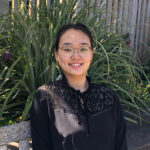
By Christina Park ’23
At the end of the first semester of the Undergraduate Library Fellowship, both the Making Team and the Research Team gave a presentation during a final showcase and received feedback from library mentors as well as past undergraduate library fellows. We showcased our plan and upcoming goals for the next semester, and emphasized that our underlying aim was to promote the Library Makerspace and improve accessibility to undergraduate students. We wanted more students to feel welcome in the space and take advantage of this resource.
We received constructive feedback on our presentation. Not only did we receive comments on how we could have improved details on our presentation, but we heard new ideas and brainstorming which significantly impacted the course of our project. We received suggestions to hold an “open house event” to introduce students to the Makerspace which had just moved from Moffitt to Doe Library, which we later decided to take on as our main project in the spring semester.
Initially, I had thought of “feedback” as synonymous with evaluation, grading, or even criticism. However, the feedback at the ULF showcase was a small example of how feedback would be used in a positive, constructive way throughout the fellowship that expanded on any ideas that we brought to the mentors or the research team. This was a valuable part of the process and helped improve the quality and depth of our project.
After touring and utilizing the space, we noticed that the Makerspace would be in a more prominent position in the Doe library and would be easier to find compared to its old location in first floor Moffitt. Despite my apprehensions that the Makerspace might feel more intimidating and inaccessible in Doe compared to Moffitt, the new Makerspace actually felt warm and open, clustered amongst other resources in the opening of Doe library across from Morrison Library.
One challenge for me was having patience throughout the process. I enjoy taking immediate action and working quickly with an aim of “finishing” in an effective manner. However, this style of work is not always conducive to every project, especially ones which involve creative thinking and brainstorming. In order to publicize the event by submitting the event details, registration link and flyer to different campus organizations and email newsletters on campus I had to wait for all these components to be assembled, and I acknowledged again how impatient of a person I am when it comes to completing my tasks.
Beyond this, we learned how to use small tools to facilitate our communication and collaboration. For example, although initially scheduling meetings seemed burdensome due to our varied and crammed schedules, we learned how to use Google Calendar functions to find mutually convenient times. We also had the opportunity to learn more about ourselves by taking an MBTI test and including it in our introductions in the first orientation meeting, as well as the Clifton Top 5 Strengths Assignment.
ULF emphasizes teamwork, creative thinking, and communication, which are highly coveted and important skills for many different positions. There was a great deal of growth and change in the structure of the fellowship from the first and second semester, and I think the fellowship was a genuine two-way collaboration between the mentors and the fellows. I am grateful for what I have learned throughout the ULF and for the mentors’ adaptability and implementation of new ideas, and I look forward to seeing how the ULF will expand and improve library experiences through the next cohort of fellows.
Learning Through and With Peers
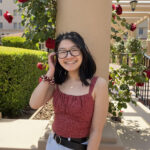
by Katherine Chen ’23
As a second year returning fellow, I had a lot of ideas and knowledge coming into this school year. I had the foundation of knowledge from last school year, and because of that, I had flowing ideas of what kind of projects and services the fellows could work on.
Meeting this year’s fellowship cohort made me even more excited. In the Research Team specifically, we all came from different backgrounds with different knowledge and perspectives that only served to help us refine our project as it went. At the end of fall semester, the team had to present our pitch idea to a group of stakeholders where we would receive feedback. Working together with the team on our pitch idea was one of the most gratifying experiences of the fellowship for me. I came in with ideas of my own, and when they were introduced to my team members, the ideas were refined and iterated to be even better. One of my ideas was to work with New Student Services on GBO curriculum so that all incoming students would have working knowledge about the library. When I introduced this idea to the team, we worked together to refine it to be even better. We workshopped the idea so that it became working together with resource centers at Cal— such as the Career Center, the Student Learning Center, and Bridges— to discern what students knew about the resources the library offered and to provide a fact sheet about library resources so that students could easily find answers to their questions. We all had different backgrounds and knowledge that we brought to the table, and the team’s intersectionality only helped with refining our project.
My biggest takeaway from the fellowship this year is that working in teams and being supported by your team members makes all the difference. I learned so much from my peers whether it be about library or campus services I was unaware of, to new perspectives on issues that I would have never encountered on my own. All the people I have met and learned from through the fellowship have made my experience memorable and worthwhile, and I am so grateful I had the privilege of their presence in my life.
Dealing With Ambiguity: Makerspace Outreach
by Chloe Chu ’22
These past two years have been filled with circumstances which have required us to be flexible, empathetic, and open to change. So, too, as a Library Fellow. As we collaborated together, we were pushed beyond our comfort zones, encouraging us to be more adaptable and understanding. This year, as a member of the Making Team, I had the opportunity to immerse myself in the design thinking process through a service project to make the Doe Makerspace more accessible and equitable for our undergraduate students.
Initially, I was excited to work on the Making Team because it meant we would be in the Makerspace often. Or so I thought. Well, at least it sounded cool. Then, it dawned on me: What is the Makerspace? Where is it located? Who can use it? What can you do there?
I visited the Makerspace for the first time in August 2021. The space was dimly lit, a bit messy, and quite cold but I loved it (there are 3D printers!). We kicked off the year learning about one another and diving into a wallet activity, where we partnered up and explained our ideal wallet to each other. After conducting a brief interview, we had five minutes to design our partner’s ideal wallet. This created excitement as we caught a glimpse of how to approach empathy and design thinking on a personal level.
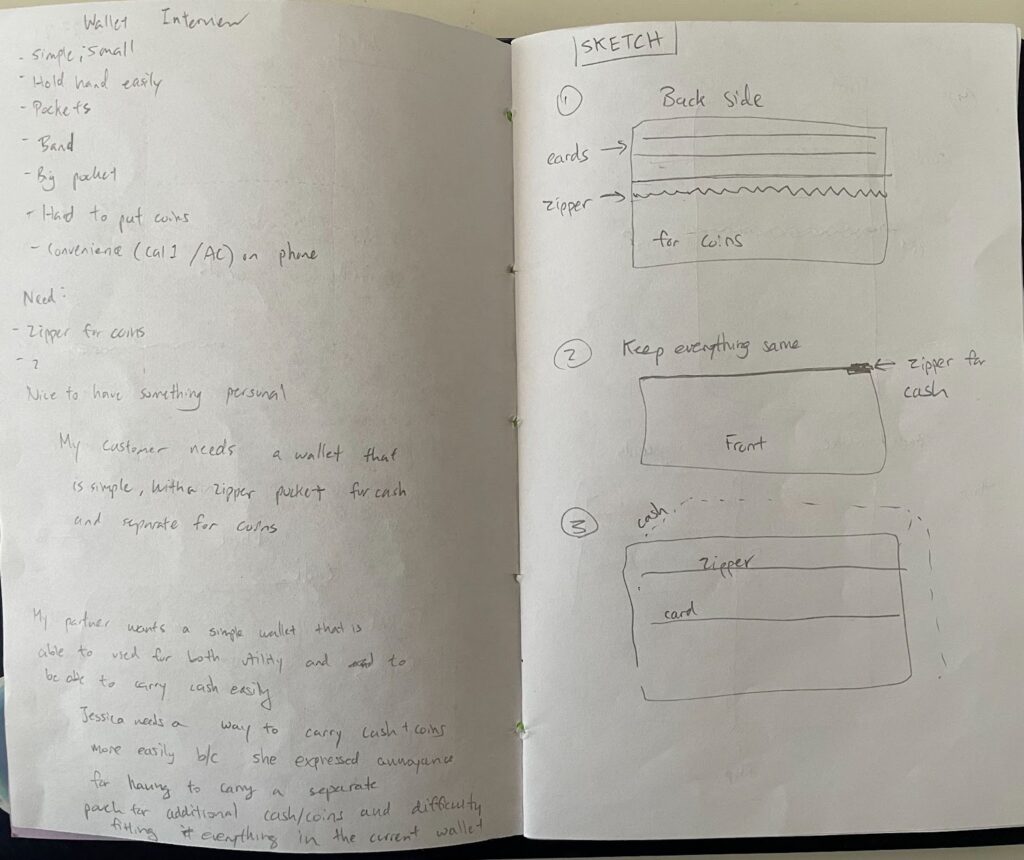
Throughout the fall, I attended each group meeting hoping our mentors would announce our projects and the concrete steps for execution. However, I never received clear answers. Instead, I would learn of one more tool to use in the process, whether that was a concept related to emergent thinking, empathy and awareness, or turning our constraints into creativity. Though frustrating at the time, looking back, the lack of clarity and direction we received was intentional. The ambiguity, complexity and uncertainty challenged us to reimagine the Makerspace with full creativity, without constraint.
Our team came up with our problem statement using the following framework: [Community] needs a way to [user’s need] because [insight]. Our team’s statement: UC Berkeley Library and the Makerspace need a way to encourage underrepresented UC Berkeley students to use the Makerspace because more people should feel that they are welcomed here.
With our problem statement finalized, the Making Team (Alysa, Christina, Maura, and I) set up bi-monthly meetings to work on our projects. These meetings laid the groundwork for our final service project, a Makerspace Open House. However, the road to our event was full of ups and downs. First, it was challenging to be intentional during our team meetings as it was not always clear which stage in the design thinking process we were in. It seemed that our mentors gave us free rein, but we were searching for clear directions. It also felt overwhelming thinking about how we would make the space more accessible for 30,000+ undergraduates. However, in the midst of uncertainty, we learned to pivot and iterate quickly. At some point, we reminded ourselves that this process was meant to be messy. It is okay to fail. That is the purpose of iteration. These reminders inspired us to explore multiple ideas and conduct more user interviews with students. They fueled our next meetings as we revised and finalized details for the Open House. In the end, I was inspired by the incredible success of the event. It was rewarding to see the many hours we invested into the iterative process come to fruition. But more than anything, I learned to take risks without knowing all the details and to embrace change even if it might be initially stressful.

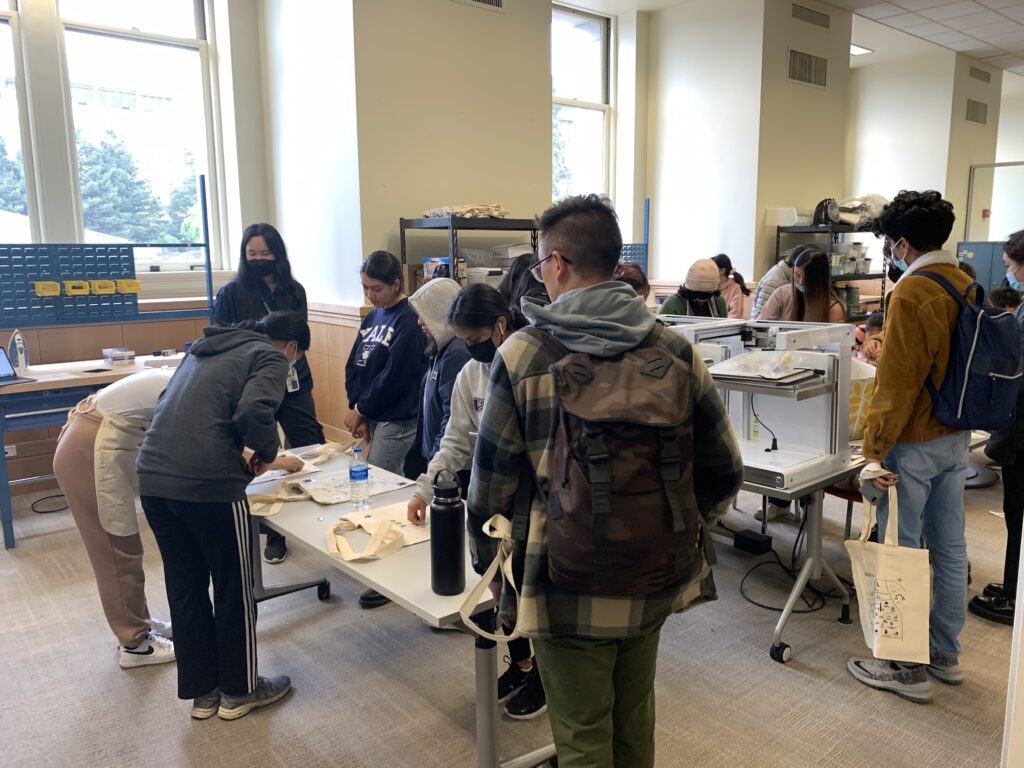
While these years have been challenging academically and personally, they have also grown me in ways I could not have imagined when I first arrived in Berkeley. I’m grateful for the opportunity to serve the Berkeley community as a Library Fellow and I will take the lessons I’ve gathered and apply them to whatever’s ahead in the future. I encourage future Fellows to develop strong relationships with your mentors and teams beyond the fellowship context, lead your meetings with intention, and embrace the process (in all of its messiness) along your journey.
(Photos courtesy of Kiyoko Shiosaki)
Maura Adela Cruz – Fall Semester Reflections
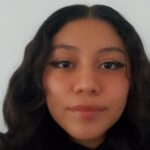
by Maura Adela Cruz
Coming from a low-income Indigenous Oaxacan community, the library was among the few educational resources available in my hometown. Growing up, it was not only a space for reading and studying, but for research, creativity, and design. From academic tutoring, to crochet circles, and English language classes, our public library held many services for the community. However, despite the multitude of resources available, they were inaccessible to the people of my town. A lack of awareness, lack of time, and language barriers are only some of the reasons that the library resources were inaccessible in the context of my community. Due to the lack of accessibility, my Indigenous Oaxacan community came together to form our own spaces, programs, and organizations. We sought to make resources available and accessible in a way that centered our interests and needs. Because of my aforementioned experiences, I became quickly familiarized with the design thinking process and noticed many similar patterns occurring in Berkeley.
Attending Berkeley as a low-income and first-generation Indigenous student, I noticed the situation mirrors that of my hometown. Although the university offers a plethora of resources for students to enjoy, these resources are often not accessible to students of marginalized backgrounds. Prior to the Undergraduate Library Fellowship, I personally had very little awareness of the extent of resources and services available in library spaces.
I joined the Making team to help encourage students to use the Makerspace and figure out ways to increase accessibility to this wonderful resource. Throughout the semester, we worked as a team to brainstorm, listen to UC Berkeley students, identify our target audience and a problem statement. Understanding multiple student perspectives, and coming together as a group was important to the process of creating and initiating potential solutions to the issues at hand.
One part of the process that stood out to me were the student interviews we conducted to gain user insights on Moffitt Library and the Makerspace. It was helpful to validate my experiences and also go beyond my experiences. Through the interviews and observations I was able to consider other barriers marginalized students face with being able to use the library resources, specifically in the Makerspace. This activity helped me apply the lesson to observe, empathize, and question, as was discussed in our Makerspace team meetings. The user interviews were crucial to understanding the situations and sentiments of several UC Berkeley students, and identifying a problem statement to work on solving. It allowed us to learn more about the target audience and who would benefit from our efforts to make the Makerspace more accessible.
After identifying the target audience and problem statement, we met as a team to come up with solutions and actions that can be taken on our behalf to reach our goal for increased accessibility. Throughout these past few months, the process has been centered on coming together and taking into account the users needs. How can our resources and space best benefit every user, especially students who have been historically excluded and marginalized? We asked ourselves many questions, came together as a team to share our experiences, sought varying perspectives from other UC Berkeley students, and received feedback from our mentors and the Research team. To put it simply, my experience in the fellowship has solidified that solutions and next steps towards accessibility take a collective effort.
A Fellow’s Tale on Navigating Library Resources During a Pandemic and Beyond
by Zhané Garlington, of the she series, Cal Class of 2021
Growing up as a low-income student of color, the library is where I went after school and during school breaks to explore new worlds and receive help with homework. As a 2020-2021 Library Fellow I was fortunate to not only aid in creating a space where students like me could continue to receive library support, but also was extremely fortunate to gain a sense of community in times where in person activities were limited and/or prohibited. In our digital meeting spaces, Nicole Brown, Kiyoko Shiosaki, Gisèle Tanasse, and Kristina Bush emphasized innovative thinking and encouraged cooperative activities. The experience was like no other and I am extremely grateful for being able to partake in this fellowship as my undergraduate degree comes to an end.
As a Library fellow in the Making Research Accessible Team alongside Katherine Chen, Joseph Rodriguez, and Tara Madhav, my mentor Gisèle and I centered our project around the early stages of research. Early in the semester, we surveyed some student-ran social media pages such as the transfer student page and the student parent page on Facebook in order to gain insight on student research processes. From our findings, it was understood especially at the undergraduate level, that the biggest research obstacle most students faced was getting their research started. This is the inspiration behind our ‘keyword script’. The big ideal behind the script is to have an instructional video share research tips with students. A narrator would suggest that before a student begins to look up their research subject, they should brainstorm some keywords to search. Students would then be instructed to think about their research question and condense it down to the phrase:
“I am researching (blank) in order to find out (what/how/why blank.)
There would be a few prompts on screen with timed intervals for students to complete said prompts before moving on to the next one with the intentions being that the core concepts students thought of through the prompts would be search terms to find books, articles, etc. in our library databases. In an ideal world where I am more tech savvy, I would have loved to create an algorithm that created keywords off of keywords that students put into the library databases which could potentially help students find sources they may have not have got to through their own self guided keyword processes.
This keyword project came from Gisèle and my own passion for keyword brainstorming, and overall how activities like it can lead individuals not only to find their own research passions, but also to find their general passions. Self-paced learning opportunities for undergrads, where self-actualization might be a takeaway was something I wanted to root my fellows project in, and by highlighting existing resources to support undergrads I believe that is exactly what we did. Despite the current circumstances of the world the 2020-2021 cohort lived through, we were still able to accomplish so much! So for anyone looking through these blog posts considering applying to the next cohort of Library Fellows, I am thankful that I got to end my time at Berkeley as a fellow and would highly recommend the fellowship to anyone who also wants to add a truly enriching experience to their own undergraduate path.
Grounding Passion with Empathy and Compassion: Reflections on the Undergraduate Library Fellowship
by Keziah Aurin ’22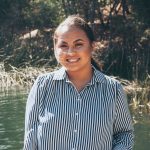
I remember my interview for the Undergraduate Library Fellowship very vividly. Kristina and Nicole, the kindest people on Earth and the program coordinators asked me about my experience in design and how I would like to use it in the fellowship. I said something along the lines of, “I have no idea but I want to use design to solve problems in my community.” To my surprise, I am now wrapping up my fellowship with this blog post!
Coming into the fellowship, I thought we would dive right into determining issues or things to improve on in the Library and finding solutions addressing them. I could not be any more wrong. Throughout these past eight-ish months, we placed a lot of focus on learning and truly grasping what it means to center humans in our designs and to make solutions accessible, effective, and long-lasting. It became more about us growing than us producing.
During the fall semester, the mentors took the time to help us understand and engage with human-centered design. We participated in workshops, open discussions, and activities to immerse ourselves in what it is like to 1) face problems, big and small, fictional and realistic, and; 2) develop methodical solutions out of them. In addition, our mentors also helped us ground ourselves and our thinking in radical self-love and radical community care. Through our discussion on Emergent Strategy and activity on Rapid Prototyping, we had the opportunity to not only define, but also actualize empathetic and selfless problem-solving.
Translating that to our spring semester project, I, along with my amazing partner, Natalie, put together a survey aiming to address disparities within the library and its relationship with marginalized undergraduate students. We hoped to gain a better understanding of why student organizations tend to offer their own services similar to the library such as research support, book banks, and even study spaces. More importantly, we wanted to highlight these existing resources, through the library, using a Notion database to make it user-friendly and easy to access for our target audience.
As I sit in front of my computer and write this reflection, I can’t help but think that perhaps we don’t need crazy ideas to address problems around us. Instead, it’s far more crucial that we slow down to think, listen, reflect, understand, and try to take advantage of the people, skills, and resources already in front of us. This fellowship and every single person that I got to work with (Jen, Annalise, and Natalie- you all have my heart!) have transformed my design thinking and problem-solving processes drastically. To put it bluntly, I am no longer a let’s-get-right-down-to-business type gal. Instead, I am now a let’s-sit-down-and-reflect type of leader.
I think that’s what we need more of: spaces and people that encourage us to learn and explore, shifting away from productivity and towards the journey. After a heavy year full of turbulence, turmoil, and uncertainty, I found a (virtual) safe haven every other Monday afternoon where I was allowed to think critically, ask loudly, and solve empathetically. Sometimes all we need is a space fast-paced enough that we don’t let the world pass by us but slow enough that it still allows us to reflect and still be human.
The Process of Learning through a Pandemic
 by Tara Madhav ’21
by Tara Madhav ’21
During a particularly difficult year, the Undergraduate Library Fellows and Library Mentors had to think together about how to expand library services in a time when physical access to library services was greatly limited for Berkeley students. As we prioritized accessibility in our meetings, we had to take into account the fact that most students would not be on campus, let alone enter the library, for the duration of the academic year. The pandemic brought particularly important meaning to the idea of “design thinking.” Our mentors prioritized process over product, guiding us through a non-linear process to understand how we can understand and assist with people’s library needs.
I was part of the Making Research Accessible Team with Katherine Chen, Joseph Rodriguez, and Zhane Garlington. We received guidance and support from Nicole Brown, Kiyoko Shiosaki, Gisele Tanasse, and Kristina Bush as we navigated the process of creating a survey that would accurately assess the student community’s library needs. Perhaps because we could not consult our peers easily in a virtual environment, the survey design process required us to ask deep questions about who our audience was. Moreover, we had to study our own understanding of what library services were. If we were the intended audience for a survey like the one we sent out, how would we understand the question we were being asked? Not only did we need to thoroughly examine how effective these questions were, we had to draft questions that were conscious of the environment we were living through. We added two questions that asked students about the impact of the pandemic on their ability to impact library services, asking what strengths students could identify with library services during the pandemic and what they found lacking.
Through the design process, I learned about the particular importance of collaboration. As our team worked to identify appropriate questions, I found it valuable to draw on my peers’ and mentors’ experiences to create an accessible survey. Our survey provides insight into a unique and transitional year for the Berkeley libraries — next year, the libraries will re-open fully and the Oskicat search database will be replaced with the UC Library Search, which will unite all UC library holdings into a single discovery tool. I look forward to the innovative projects that the 2021-2022 library fellows develop as they help students navigate these exciting changes.
Before my graduation this May, I benefited from Berkeley library services before and during these turbulent times. I met incredible peers and mentors through the Library Fellows program, I used extensive physical and digital resources to write my research papers and senior thesis, and I spent hours studying at beautiful libraries like Doe. I would encourage Berkeley students to take full advantage of the university’s opportunities, facilities, and collections — it will enrich your college experience in many ways.